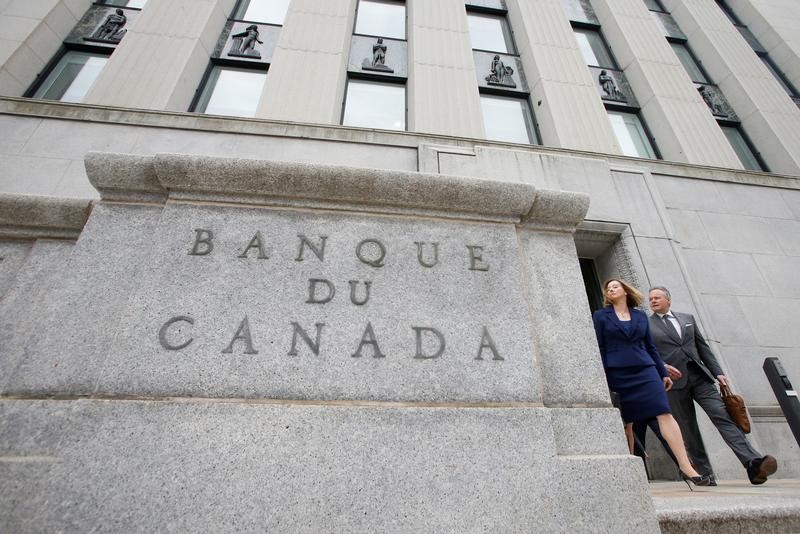Street Calls of the Week
Investing.com -- Firms surveyed by the Bank of Canada describe a cautious approach to business planning as trade tensions and tariffs continue to affect expectations for sales, investment, and hiring. The central bank’s second-quarter Business Outlook Survey indicates that while some firms see fewer downside risks than earlier in the year, overall sentiment remains subdued.
The survey, conducted from May 8 to 28, 2025, shows broad concerns among businesses regarding weak demand tied to macroeconomic uncertainty. According to the report, more firms reported that sales indicators, such as advance bookings and client inquiries, had deteriorated over the past 12 months than had improved, with exporters noting a slowdown following earlier inventory build-up ahead of new tariff measures.
The second-quarter data show that expectations of tariff-related cost pressures have moderated compared with the first quarter. The Bank said that around one-third of businesses now expect higher input costs from tariffs, a drop from about two-thirds in the prior survey, as the scope of implemented tariffs has proven narrower than previously anticipated.
“Roughly half of participants in the Bank of Canada’s Business Outlook Survey reported difficulty forecasting conditions for their business in the near term.” The report also noted that “forming an outlook is complicated in the current environment because of multiple layers of uncertainty.”
Responses in the survey point to muted investment intentions across most sectors, with firms highlighting soft demand, sufficient existing capacity, and external uncertainty as the key reasons for postponing or limiting capital expenditures. A greater share of firms reported focusing their investment activity on routine maintenance instead of expansion, a trend the Bank of Canada identified as more pronounced in capital-intensive and trade-exposed industries.
Tariff-related costs were reported as a continuing factor in input price pressures, though firms indicated limited ability to pass higher costs onto consumers. According to the survey, competitive conditions and weaker demand are constraining pricing power, leading some businesses to absorb the increases, with implications for operating margins.
The Bank of Canada’s findings also reflect subdued hiring outlooks, as fewer firms than usual plan to increase staffing levels. Survey respondents indicated that the share of companies looking to fill vacant roles or hire for expected growth remained below historical averages, while expectations for larger-than-normal wage increases continued to decline.
Near-term inflation expectations among businesses fell back to levels observed at the end of 2024, the Bank reported. Firms cited tariffs as the primary contributor to input price growth, but also noted that weak consumer demand is contributing to disinflationary forces.
Taken together, the Bank of Canada’s second-quarter survey suggests that while fears over severe trade disruptions have eased, businesses continue to operate under considerable uncertainty. Firms appear to be prioritizing stability over expansion, with many adopting a wait-and-see approach as they assess evolving trade policies and broader economic conditions.
